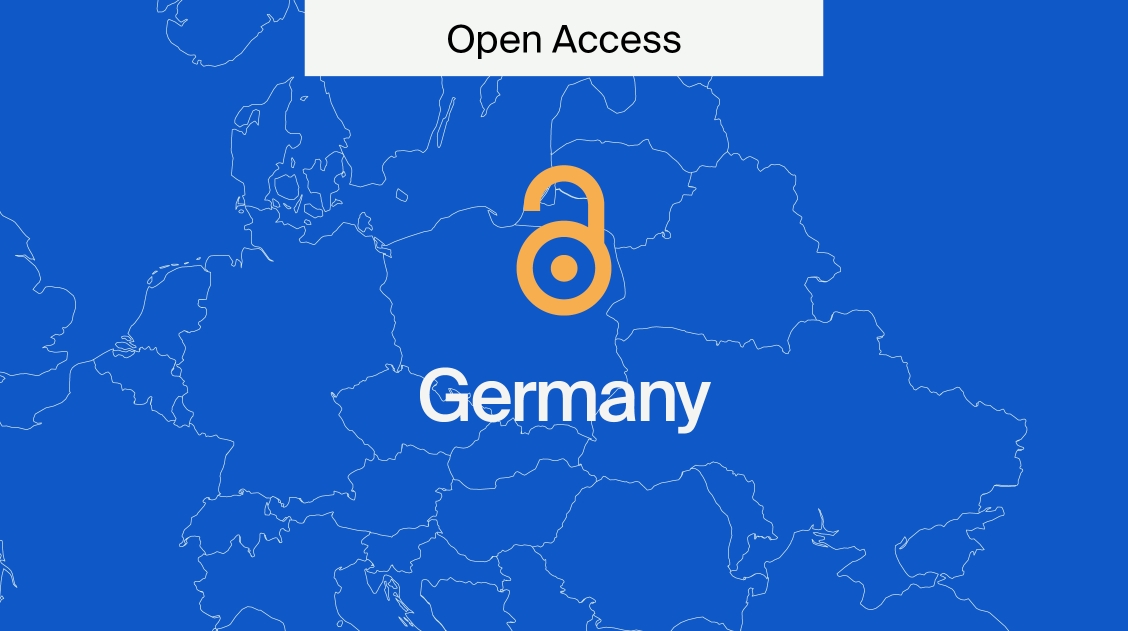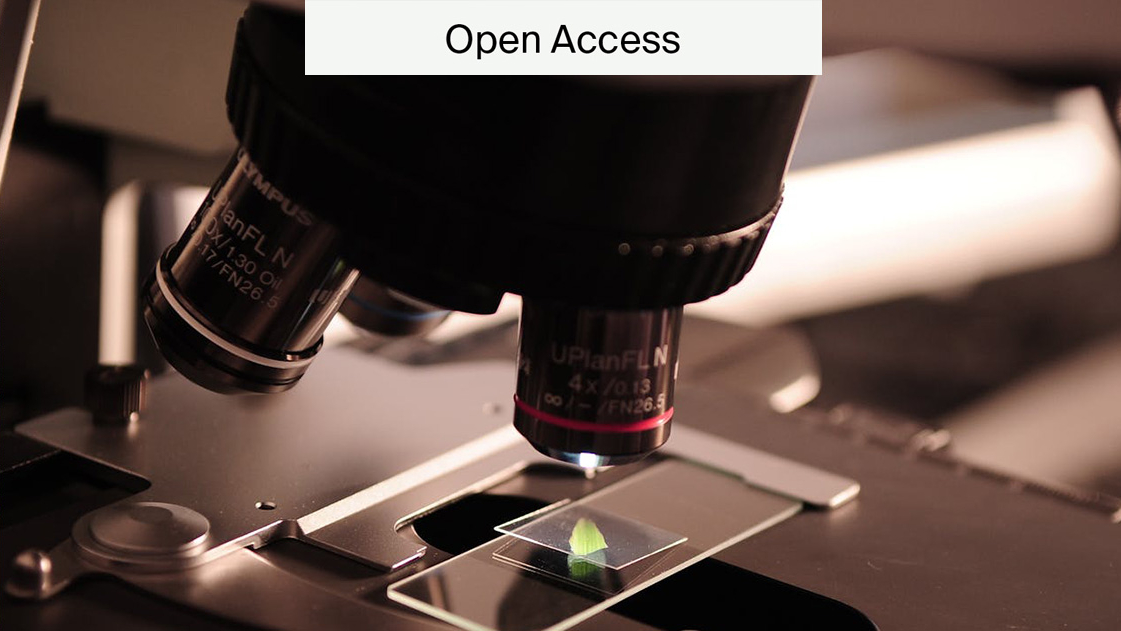
Open Access in Germany
Although Germany lacks a uniform Open Access (OA) policy, it has a sophisticated OA culture that involves various initiatives centred around developing robust strategies. Therefore, it is a leader in establishing international and institutional cooperation and advocating for a cautious and non-mandated approach.
We outline the history of the German government’s mandates and its current policies for those looking to submit research or read it.
Open Access is the new paradigm
Open Access refers to a publishing model for scholarly research that makes information immediately available to readers at no cost. This research is also free to reuse for scholarly purposes.
The benefits of publishing Open Access include gaining more citations and a greater impact, reaching a wider audience, advancing scientific innovation, retaining copyrights, and increasing the potential for collaboration and recognition. Open Access can also help institutions like universities and research agencies in low- and middle-income countries by removing any price barriers to accessing academic research.
History of Open Access in Germany
Germany has a long connection with the Open Access movement. Here is a brief history of Open Access in Germany:
- 2003: All major research institutions sign the Berlin Declaration on Open Access to Knowledge in the Sciences and Humanities, which advocated for developing tools and measures to implement OA.
- 2008: The Alliance of German Science Organisations highlighted OA as a priority area. The report suggests expanding the capabilities of green OA through repositories and developing new business and funding models to support gold OA.
- 2013: The Amendment to the Copyright Act creates a legal framework for green OA.
- 2014: German Rectors’ Conference initiate PROJECT DEAL, which aims to negotiate nationwide licenses with publishers.
- 2016: The Federal Ministry of Education and Research (BMBF) published a strategy for establishing OA in Germany, including the requirement for those receiving funding to publish their research in an OA format.
- 2015: At the 12th Berlin Open Access Conference, the international initiative OA2020 is established. This aims to accelerate the transition to OA by aligning organisations and institutions and providing support.
- 2019: OA2020 and cOAlition S launch a joint statement highlighting the coherence of their aims and visions.
- 2021: The Federal Government sets the goal of strengthening OA and open science as a common scientific standard.
- 2023: The BMBF published guidelines for the Federal Government to “firmly establish Open Access in the German ecosystem”.
Since 2003, German institutions, with support from the government, have participated in the Open Access movement. This has primarily involved discussions around building strategies and involvement in international initiatives.
Overall, Germany’s approach has been cautious and involved less mandates than other European countries, like France.
Current Open Access laws in Germany
There is no uniform national Open Access policy in Germany.
The Federal Government aims to “support the transformation to Open Access in a sustainable, reliable, and appropriate manner”. Therefore, the different federal states and institutions across Germany are encouraged to pursue OA in their own way, which reflects the cautious approach and the aim to “appreciate the diversity within scientific publications”.
The BMBF expects the work they fund to be published as OA but does not officially mandate it. Similarly, the Deutsche Forschungsgemeinschaft (DFG, the German Research Foundation) also does not mandate OA publication but suggest that DFG-funded work “should be” made openly available. The DFG will support authors with funds if they want to publish in an OA journal with article processing charges (APCs).
The Max Planck Society, a non-governmental association of German research institutes, similarly supports scientists with funding if they seek to publish in an OA journal with an APC.
Overall, the German approach to OA does not involve directly mandating its authors to publish OA but advocating for OA and providing support. This is like Japan’s OA policy, which involves developing infrastructures and incentives instead of implementing mandates.
German Open Access copyright protections
The Amendment to the German Copyright Act 2014 contains the following:
Authors of scientific contributions have the irrevocable right to make these contributions publicly accessible in a manuscript version twelve months after the initial publication.
Under specific conditions, authors in Germany have the right to publish their work in repositories, which is known as green OA. This means that scholars can publish their work in whichever journal they choose, open or closed access, and then ensure their work is freely available through self-archiving.
Since the Alliance of German Science Organisations report in 2008, there has been support for institutional and subject repositories from higher education institutions and funding bodies.
Horizon Europe
Germany is a member of Horizon Europe, which has more than €95.5 billion of funding available from 2021 to 2027. Its aims are to facilitate collaboration and strengthen the impact of research and innovation. Accordingly, Open Access continues to be mandatory for researchers receiving funding.
This is so Horizon Europe can support the “creating and better dispersing of excellent knowledge and technologies”. Its aims revolve around tackling climate change, achieving the United Nation’s Sustainable Development Goals, and boosting the EU’s competitiveness and growth
Plan S
The EU-led initiative Plan S mandates “full and immediate Open Access to peer-reviewed scholarly publications from research funded by public and private grants”. This is supported by ten principles that address copyright, transparency, and criteria, among other things.
The DFG supports but does not participate in Plan S. This further demonstrates the approach in Germany of letting its scholars lead change themselves. The government has made its support for OA clear, creating strategies and developing infrastructure, but it is ultimately up to scholars to publish OA or not.
Germany’s Open Access statistics
Despite not mandating OA publication, Germany has rapidly increased its publication of gold OA in the last 10 years. Here are some statistics from Scopus:
- 2013 66% of articles were subscription-only, 10% were green Open Access, and 12% were gold Open Access.
- 2018: 56% of articles were subscription-only, 10% were green Open Access, and 25% were gold Open Access.
- 2023: 33% of articles were subscription-only, 5% were green Open Access, and 58% were gold Open Access.
As you can see, the share of subscription-only publication has halved in the last 10 years, whilst gold OA has increased by 46%, now representing over half of all publications. This shows the success of Germany’s approach, as it has encouraged the development of an OA culture.
Future trends
Given its success, Open Access in Germany will likely continue to lack any official mandates or participation in Plan S. Instead, the government will focus on maintaining diversity across the scholarly publishing landscape, allowing different federal states to maintain open principles using their own unique approaches.
The OA2020 initiative’s roadmap recommends continuing to coordinate different organisations and institutions around common aims, further developing the OA community organically.
Also, the DFG recently signed an Action Plan for diamond Open Access, so we’ll see new approaches to funding and incentives to establish this.
Value of Open Access
All articles published by MDPI are made immediately available worldwide under an Open Access license. This means:
- Everyone has free and unlimited access to the full text of all articles published in MDPI journals;
- Everyone is free to re-use the published material if proper accreditation/citation of the original publication is given;
- Open Access publication is supported by the authors’ institutes or research funding agencies by payment of a comparatively low Article Processing Charge (APC) for accepted articles.
Researchers can satisfy Germany’s developing Open Access policy and pre-empt any stricter legislation by publishing in an MDPI journal. Alternatively, if you want to publish an early version of your article, try Preprints, our service for publishing early versions of research that are not peer-reviewed and report on either ongoing or complete research.
As of January 2025, over 100 Germany universities and research institutions have entered into a national agreement with MDPI. The publication agreement negotiated by ZB MED and is valid until the end of 2026. This is alongside the many research institutes and organisations already partnered with MDPI.
Authors affiliated with MDPI’s Institutional Open Access Program (IOAP) receive up to one IOAP discount on the APC for any paper published in an MDPI journal which may be combined with reviewer vouchers. More information can be found on the IAOP homepage.
Open Access makes vital information accessible to all readers and researchers and brings together scholars from across the world. Thus, it is ideal for tackling global challenges such as climate change and cancer research that require urgent and coordinated attention.
Germany has a strong OA community despite having no official mandates. This therefore highlights the drive of scholars to establish open principles. If you want to learn more about Open Access generally, we have several articles that may interest you.










